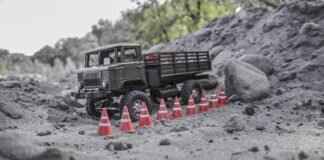A lawsuit was filed in federal court, looking to undo the 624,000-acre Chuckwalla National Monument in the Southern California desert. The lawsuit claims that President Biden overstepped his authority by setting aside such a vast swath of land just days before leaving office. The plaintiffs, represented by a conservative think tank based in Austin, Texas, argue that Biden abused the Antiquities Act, a law from way back in 1906 that allows presidents to create national monuments. Senior attorney Matt Miller from the Texas Public Policy Foundation, which filed the suit, mentioned that the law was supposed to limit monuments to smaller areas, like maybe 100 or 1,000 acres, not the massive expansion we’ve seen in recent times.
Chuckwalla, located south of Joshua Tree National Park, was created by Biden on Jan. 14 to protect land sacred to tribes, valuable wildlife habitat, and military sites. Supporters of the monument point out that presidents have used the Antiquities Act to protect large areas in the past, like when Theodore Roosevelt designated the Grand Canyon in 1908. The suit, filed on May 1 against the U.S. Department of the Interior, argues that residents with mining claims in the monument’s footprint, along with a nonprofit advocating for recreation access, will be restricted from using the land as they did before.
Daniel Torongo, a Michigan resident with family mining claims in the region since 1978, and members of the BlueRibbon Coalition are worried about the limitations the monument designation will bring. Torongo may face difficulties expanding his operation as planned, affecting his retirement plans to mine with his family. The suit also mentions concerns from off-road enthusiasts and dirt bikers in the BlueRibbon Coalition who fear restrictions on their activities due to the goal of keeping the land undeveloped.
The Interior Department has yet to respond to the lawsuit, and a department spokeswoman refrained from commenting on ongoing litigation. However, the department reaffirmed its commitment to conserving natural and cultural resources, upholding tribal responsibilities, and managing public lands for all Americans while being fiscally responsible. Janessa Goldbeck, CEO of Vet Voice Foundation, a nonprofit representing veterans, criticized the lawsuit, calling it an attempt by out-of-state interests to sell off California’s public lands.
Goldbeck disputed claims in the suit, stating that military sites protected by the monument include remnants of a World War II-era training site established by Gen. George Patton. She emphasized that recreation activities like hiking, hunting, and camping would still be allowed within the monument. The Trump administration had previously reduced the boundaries of monuments in Utah and allowed commercial fishing in a marine monument off the New England coast, decisions later reversed by the Biden administration.
The lawsuit challenging the Chuckwalla National Monument designation argues that the use of the Antiquities Act was invalid and claims the Act itself is unconstitutional. The plaintiffs argue that Congress, not the executive branch, should decide how federal property is used, citing the Property Clause of the Constitution. If successful, the lawsuit could nullify Chuckwalla’s monument status, with the possibility of an appeal that might reach the Supreme Court. Chief Justice John G. Roberts Jr. had previously raised questions about the implementation of the Antiquities Act, hinting at a potential review of the law in a future case.
Overall, the future of Chuckwalla National Monument remains uncertain as legal battles unfold, with stakeholders on both sides voicing their concerns and arguments.














